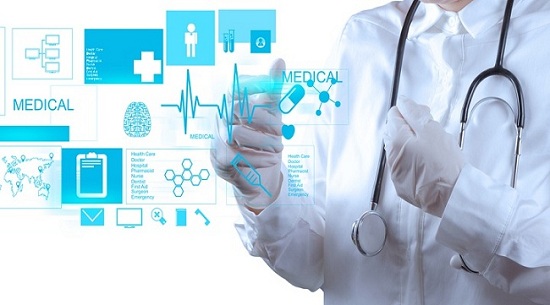Electronic health record software is a digitized version of paper records and it has transformed the way healthcare organizations record, store, share and retrieve patient records.Implementing EHR solution helps streamline processes and increases work efficiency, ultimately enhancing the quality of patient care.
Electronic health record software is a digitized version of paper records and it has transformed the way healthcare organizations record, store, share and retrieve patient records.Implementing EHR solution helps streamline processes and increases work efficiency, ultimately enhancing the quality of patient care.
However, EHR software is available as both customized systems and cookie-cutter solutions. So purchasing the right product becomes a challenging task as every healthcare organization has a unique workflow depending on its size, scope and aim. Weighing the pros and cons of off-the-shelf EHR systems against custom EHR software will help you arrive at the right decision.
Meanwhile, let’s take a look at the 6 areas that have been revolutionized completely with the advent of cloud-based EHR:
1. Improved Care Coordination
Care coordination is especially important for handling medical emergencies and managing patients who are in critical condition. With cloud-based EHR, healthcare providers are less likely to make errors as they are aware of the whole picture in real-time. With no more waiting for medical records, they can also be more responsive to patient needs and do the needful quickly.
2. Accurate Diagnosis
Using EHR software, healthcare organizations and nonprofits assisting persons with disabilities can instantly access patient records including their past diagnoses, surgeries, prescriptions, procedures and lab results. When the complete medical history of a patient is at their fingertips, no information is overlooked and there is no delay in making a diagnosis and developing a personalized care plan.
3. Superior Research Quality
EHR software enables healthcare research facilities anddoctors to leverage analytic capabilities and generate accurate outcomes according to disease progression, prognosis, drug trials, active clinical conditions and other applicable parameters. These reports empower healthcare professionals to constantly monitor and accurately assess treatment plans and the progression of the disease.
EHR Software also ensures better decisions by facilitating safe and compliant information sharing between peers, healthcare practices, and research facilities. With access to actionable information, both patient care and healthcare quality are improved considerably.
4. Positive Patient Experience
Custom EHR Software is integrated with scheduling systems and patient portal. As all the information remains synchronized on the electronic health record software, it eliminates paperwork for the administrative staff and patients have easy access to their clinical records. Using the portal, patients don’t need to fill several forms at every appointment and the administrative team is not required to re-enter all the patient information into the system. This accelerates the communication process between patients and healthcare professionals and improves the patient experience. Click here to know more.
 5. Organized Clinical Process
5. Organized Clinical Process
Healthcare quality includes prompt management of medical emergencies and EHR software enables healthcare organizations and non-profits to simplify and speed-up their clinical processes. Electronic health record software enables the healthcare staff to manage and monitor the treatment flow of every patient at every touch point.
This level of visibility allows healthcare organizations and non-profits to identify inconsistencies and improvise practices so waiting time is reduced and test results are reported on time. When both healthcare professionals and patients are actively involved in the health journey, the quality of care and clinical outcomes improve significantly.
6. Reduced Cost
Depending on the patient’s medical condition and diagnosis, the patient may need to work with different healthcare providers simultaneously. It is possible that two providers request for the same tests to be conducted multiple times. This is not only inconvenient for the patient but also expensive because multiple bills are incurred for the same treatment. But with electronic health record software, all service providers can access complete patient data on one platform which reduces the cost of treatment considerably.
Custom EHR software that is exclusively tailored to the unique needs of an organization can revolutionize the continuity of care with easy implementation of best healthcare practices.This eventually results in fewer medical errors, enhanced patient safety and fully compliant healthcare records. Adopting customized electronic health record software is inevitable for healthcare organizations that want to improve their processes and provide a superior experience to their patients.
 About Author
About Author
Rekha Patil is the founder of a tech startup called Bit2Sky, which provides compliant custom software solutions for behavioral and healthcare organizations. She’s passionate about exploring ways to use technology to help and empower Health & Human Services organizations. In her free time, she loves to take trips with her family.

















